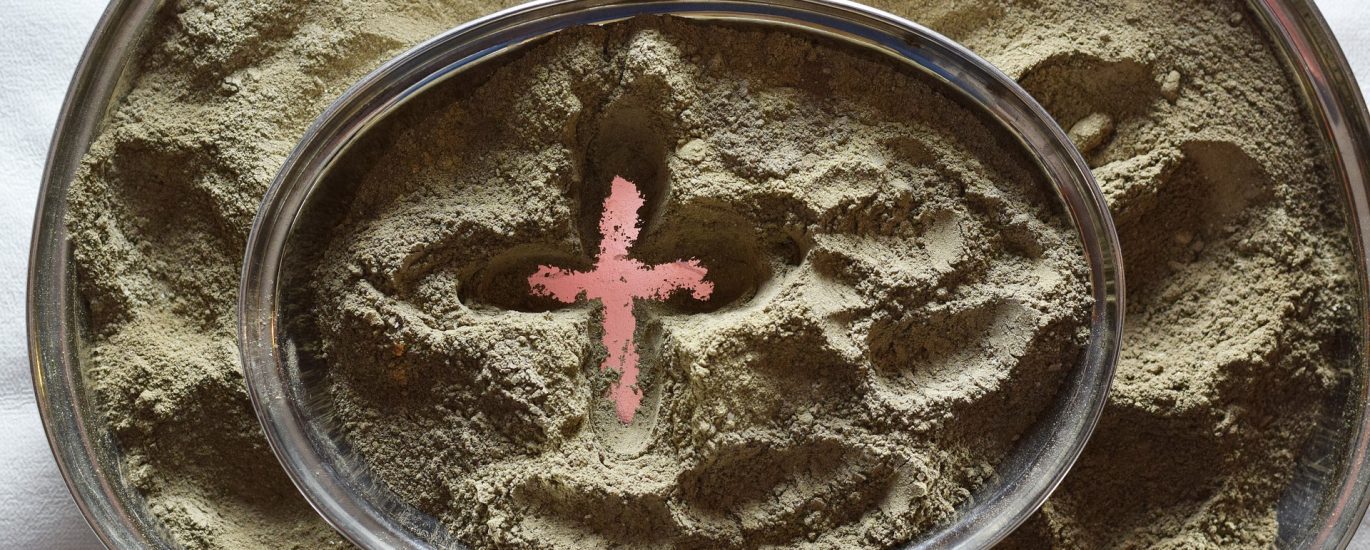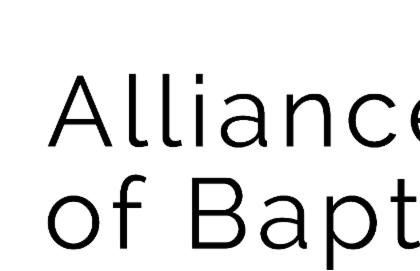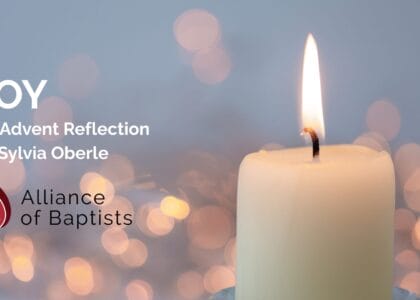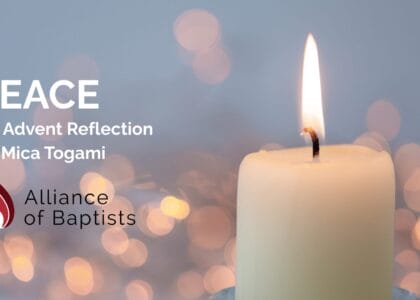By Molly Brummett Wudel
I’m frequently asked these days, “How are you?” Often, I don’t know where to begin. But perhaps I answer most honestly by confessing I did not partake in the imposition of ashes this year. This omission did not begin intentionally, but as the day wore on I could not partake in a ritual I’d presided over numerous times. Why couldn’t I bring myself to stick my forefinger into the ash and oil?
When the pandemic hit, I was barely shy of nine months pregnant. The pregnancy up to that point had been fraught. I have a pre-existing condition, and my daughter was unexpectedly diagnosed in utero with a genetic syndrome known as Turner Syndrome. Less than 2% of babies with Turner Syndrome make it to a live birth, and those that make it to a live birth often deal with complex congenital heart defects. Our daughter, George Eden, would be no different. My spouse James and I finally allowed ourselves to believe we’d meet our long- desired daughter, but most of our dreams and plans for how our beloved community could bear witness and show up to support us shifted when the world shut down. No big party to finally exhale and celebrate our babe defying all odds. No final in-person church gathering for our beloved church to lay hands on us and bless us into this new, exhilarating yet unnerving chapter. No visitors at the hospital during a long labor. No dear friends and family sitting with us and praying alongside us as our daughter would face open heart surgery at one day old. No partner to hold hands with in the PCICU due to Covid restrictions and only one parent allowed at any given moment in the hospital doors. And these “nos” were only the beginning. Since last March, under doctors’ orders, we have only left our home to go to the hospital and medical appointments. That’s it. We’ve only interacted with others longer than fifteen minutes, inside or outside, if they’ve been able to quarantine fourteen days before being with us.
As I stared at those ashes, it hit me why I couldn’t dip my finger in the oil and the ash and proclaim from dust you came, to dust you shall return. It wasn’t because I couldn’t stare mortality in the face. I’ve done plenty of reckoning with mortality this past year. I couldn’t impose ashes because I couldn’t stare mortality in the face one more time without our community drawing physically near and bearing witness, too.
After her first open heart surgery, George went in a few months later for a heart catheterization to buy more time before an inevitable second open heart surgery. What was supposed to be a relatively straightforward procedure took an unexpected turn. As parents of a medically-complex child, you quickly come to know the rhythms of procedures and the update calls. They were supposed to call at 10:45 to give an update, but 10:45 came and went, 11:00 and still no call. But then, we got it—a nurse telling us to quickly come back upstairs. We knew in our guts something had gone wildly wrong when they told us we could both come inside the hospital.

“Your daughter’s heart stopped spontaneously, something we had not seen in the cath lab before. She had to have CPR for over fifteen minutes, we were moments away from putting her on ECMO (extracorporeal membrane oxygenation, essentially life support) and the surgeon is still in the room standing by, but her heart is beating by itself now. She is critical but stable.” As we sat in that tiny waiting room listening to the medical team explain what happened, I felt in a new way the breadth of utter pain and sheer gift that is life. The raw reality that from dust we came and to dust we shall return washed over me in ways I couldn’t have fathomed before that moment. As we sat in that hospital, I desperately needed my beloved community to be close, holding us and crying with us. But Covid took that from us all. All we had was an iPhone to call those we held most dear and share the unexpected, harrowing news. What I needed as we stood beside our intubated, still medically paralyzed, pale yet breathing babe that night in the PCICU was the presence of dear friends. I needed them to see how we were unintentionally living Mary Oliver’s belief that, “We shake with joy, we shake with grief. What a time they have, these two housed…in the same body.”
This Ash Wednesday, every fiber of my being needed to be with people willing to move past platitudes and “How are you?” to move toward the raw, honest question, “Where does it hurt?” Ash Wednesday forces us into our bodies and lived experiences to name what’s really happening below the surface. It is the invitation to collectively hold space for, “Where does it hurt?” It’s a vulnerable, bold question for both the one who asks and one who answers. Yet, when we’re bold enough to ask it and answer, it honestly lays bare and transforms all our grief and pain as well as our joy and delight at living. It is a question, though, we are too often afraid to ask.
I couldn’t impose ashes because I needed to hear that question in community. I needed this Ash Wednesday, more than any other year, to be the time when my people gathered and weren’t afraid to hold mortality alongside me. What do I need before I can dip my finger in oil and ash again? I need to be able to draw near to others and have my hurt born witness to. I have done so much reckoning with mortality this last year I simply refused to do it alone with just my tiny family once more. Maybe that makes me a heretic or a failed liturgical Baptist pastor. But if birthing and now raising a medically-fragile, remarkably resilient child in a pandemic has revealed anything, it’s that I can no longer live in stark isolation acting like living, at times, doesn’t hurt like hell. I needed to be able to look around and into the understanding eyes of those I journey with as we all honestly answer the question, “Where does it hurt?”
Don’t be surprised, then, that when the world can expand for my tiny family and we are finally allowed out of our home and beyond the walls of hospitals and doctors’ offices, I show up to your porch or backyard with some ash, oil, and a question. A question I hope you’ll ask me in return.

Molly Brummett Wudel lives in Durham, NC with her husband, James, daughter, George Eden, and their sweet pup, Greta. She pastors Emmaus Way in Durham, NC, but has been on leave since her daughter’s birth in 2020. She looks forward to returning to pastoring amidst Emmaus Way this June.





Recent Comments